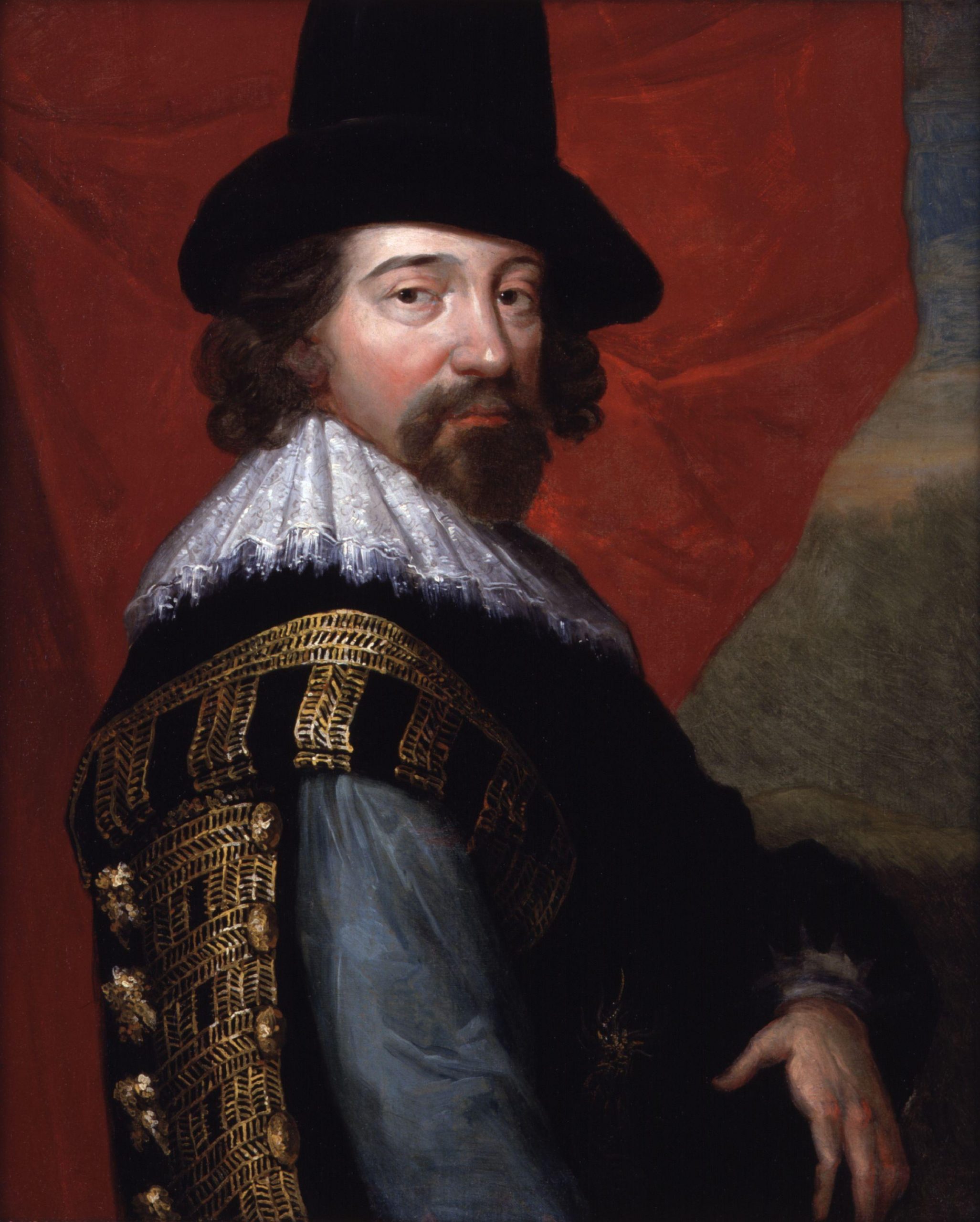8.3 Experimentation
LEARNING OBJECTIVES
By the end of this section you will discover:
- How experimentation distinguishes science from other types of exploration.
- How Francis Bacon set out the scientific method.
The use of experimentation is one of the most distinguishing factors of what came to be known as the scientific method. The birth of this method is normally attributed to the early 17th-century English philosopher and statesman Francis Bacon, 1st Viscount St Alban, also known as Lord Verulam. Bacon is considered the originator of what we call The Scientific Method.

According to Bacon, genuine knowledge was to be acquired inductively, i.e. through observation and experimentation. In his most important work, the Novum Organum (1620) he lays out a fourfold method for scientific investigation, summarized here by William F. Lawhead:
1. Objective observations of the facts of nature are made, untainted by any hypotheses or theories.
2. The observations are analyzed, and generalizations are formed.
3. From these generalizations scientific laws and theories are formulated.
4. Experimental testing of these theories will definitively prove them to be either true or false
(William Lawhead, The Philosophical Journey, 7th ed., McGraw Hill, 2018, pp. 291-2)
As we can see, experimentation was essential to Bacon’s method. An experiment is a procedure carried out to support or refute a hypothesis. Experiments provide insight into cause-and-effect by demonstrating what outcome occurs when a particular factor is manipulated. Experiments vary greatly in goal and scale but always rely on repeatable procedures and logical analysis of the results. There also exist natural experimental studies.
A child may carry out basic experiments to understand how things fall to the ground, while teams of scientists may take years of systematic investigation to advance their understanding of a phenomenon. Experiments and other types of hands-on activities are very important to student learning in the science classroom. Experiments can raise test scores and help a student become more engaged and interested in the material they are learning, especially when used over time. Experiments can vary from personal and informal natural comparisons (e.g. tasting a range of chocolates to find a favorite), to highly controlled (e.g. tests requiring complex apparatus overseen by many scientists that hope to discover information about subatomic particles). The uses of experiments vary considerably between the natural and human sciences.
Experiments typically include controls, which are designed to minimize the effects of variables other than the single independent variable. This increases the reliability of the results, often through a comparison between control measurements and the other measurements. Scientific controls are a part of the scientific method. Ideally, all variables in an experiment are controlled (accounted for by the control measurements) and none are uncontrolled. In such an experiment, if all controls work as expected, it is possible to conclude that the experiment works as intended, and that the results are due to the effect of the tested variables.
In the scientific method, an experiment is an empirical procedure that arbitrates competing models or hypotheses. Researchers also use experimentation to test existing theories or new hypotheses to support or disprove them.
An experiment usually tests a hypothesis, which is an expectation about how a particular process or phenomenon works. However, an experiment may also aim to answer a “what-if” question, without a specific expectation about what the experiment reveals, or to confirm prior results. If an experiment is carefully conducted, the results usually either support or disprove the hypothesis. According to some philosophies of science, an experiment can never “prove” a hypothesis, it can only add support. On the other hand, an experiment that provides a counterexample can disprove a theory or hypothesis, but a theory can always be salvaged by appropriate ad hoc modifications at the expense of simplicity.
Experimentation then is the single most important distinguishing mark of science. It takes us from speculation to demonstration, from the abstract to the concrete. Bacon’s method would become the starting point for all scientific endeavors.
Works Cited
“Francis Bacon, 1st Viscount St Alban.” Wikimedia Commons, 1731, https://commons.wikimedia.org/wiki/File:Francis_Bacon,_Viscount_St_Alban_from_NPG_(2).jpg. Accessed 13 May 2022.

